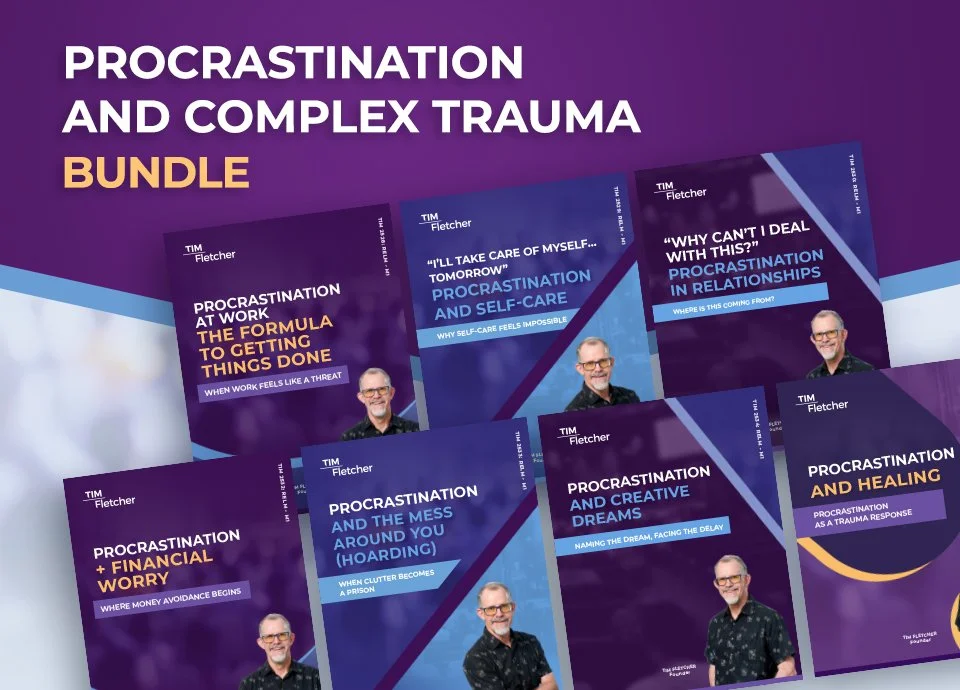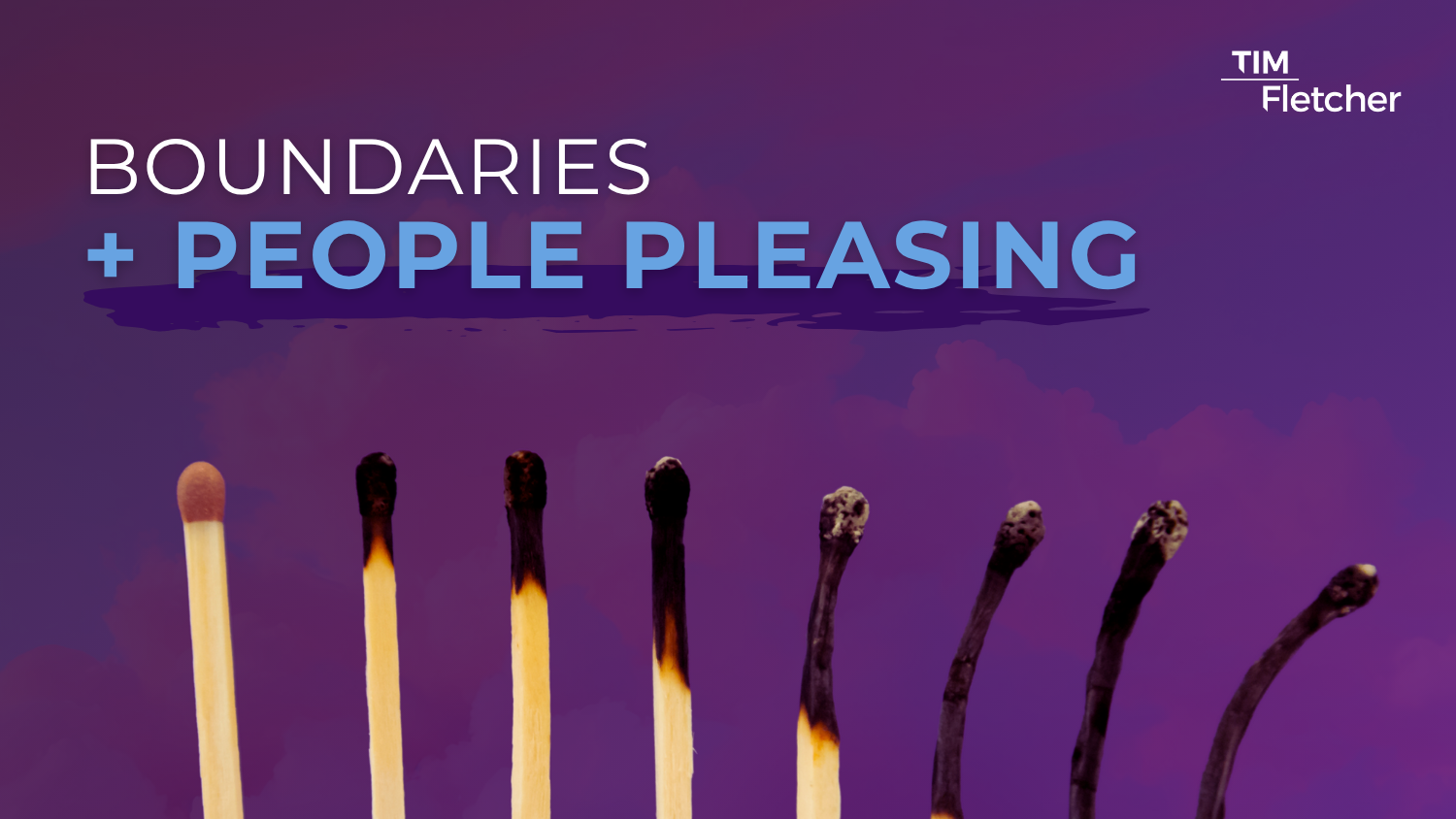Procrastination and Financial Worry
Money isn’t just about numbers — it’s tied to survival, safety, shame, and self-worth.
That’s why bills go unopened, budgets get avoided, and decisions are delayed. Financial procrastination is rarely about laziness; it’s often a survival strategy rooted in childhood experiences with instability and fear.
In this course, you’ll explore how complex trauma shapes money stress, why both having and not having money can trigger avoidance, and how shame makes financial tasks feel overwhelming. Through Clara’s story and guided practices, you’ll learn to uncover the roots of your patterns, recognize your triggers, and begin making choices from worth instead of fear.
This course will help you move from avoidance into clarity, building not just financial stability but emotional steadiness and trust in your relationships.
Get Access with the EVERGREEN Membership
Get unlimited access to Tim Fletcher Co’s Evergreen library for just $30 per month, or $300 per year. With six new self-development courses added every month, you’ll always have fresh, practical tools to support your growth in areas like trauma recovery, boundaries, relationships, and personal transformation. Learn at your own pace, revisit lessons anytime, and build lasting change with guidance that’s both compassionate and deeply practical. See more details here.
*All prices are in Canadian Dollars.
Course Curriculum
-
Welcome Video
Introduction
-
Many people avoid finances not because they don’t care, but because money feels unsafe. This lesson explores how early experiences of secrecy, conflict, or scarcity shaped avoidance patterns, and how reframing those beliefs can open the way to more confidence and stability.
Lesson • Journal • Video
-
For some, both having money and not having it can trigger fear, shame, or impulsive reactions. Here you’ll learn how those survival responses fuel procrastination, and how facing money step by step can break the avoidance cycle.
Lesson • Journal • Video
-
Procrastination doesn’t always look like freezing—it can also show up as spending to escape stress. This module helps you understand how trauma drives impulsivity, why short-term relief deepens long-term worry, and how to build steadier financial habits.
Lesson • Journal • Video
-
Messages linking worth to wealth often leave people chasing perfection or avoiding finances altogether. This lesson unpacks how shame-based beliefs distort money management, and offers new ways to define success with integrity and stability.
Lesson • Journal • Video -
Constantly seeking “more” can become another form of delay, keeping you from engaging with what’s right in front of you. This final module highlights how contentment shifts money from a source of fear to a tool for balance, helping you act with consistency and reliability.
Lesson • Journal • Video -
This section expands on what you’ve learned about money and the nervous system. You’ll find grounding practices to regulate fight, flight, freeze, and fawn responses; reflective processes to release old guilt and choose new patterns; and curated resources—books, talks, music, poems, films, therapies, and community supports. Together, these tools help turn money from a source of fear into an area of stability, self-respect, and trust in your relationships.
This course is included in the Procrastination and Complex Trauma bundle.
Save over 70% when you purchase all 7 Procrastination + Complex Trauma courses together.


















